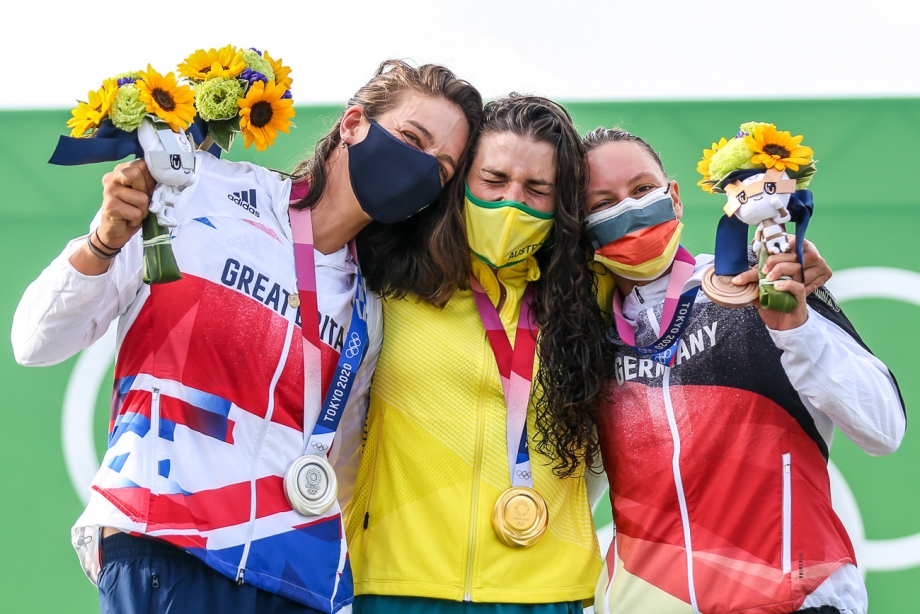“I’m a huge fan of this sport, it’s so cool to see that we’re finally getting that equality, getting those women into the Olympics and showing that we’re badass too.”
Nevin Harrison, 19-years-old, just moments after making history in Tokyo last year by becoming the first woman to win an Olympic canoe sprint gold medal.
For the first time, the International Canoe Federation can celebrate International Women’s Day having truly made our sport, on the water at least, gender equal. But there is still work to be done.
At the Tokyo Olympics there was medal and athlete parity across both slalom and sprint events. In Paris in 2024 there will also be gender parity in paracanoe. But it’s off the water where the ICF has set itself the goal of raising the voice and the presence of women.
Joining Harrison in the ICF history books were Australia’s Jessica Fox, gold medalist in the women’s C1 slalom, and the Chinese pair of Xu Shixiao and Sun Mengya in the women’s C2 500.
“We fought really hard to get to this point in my sport as women, so I am really proud to be the representative of Australia in the first women’s C1 Olympic event, and to win the gold was amazing,” Fox said.
Athletes like Fox in canoe slalom, and Canada’s Laurence Vincent-Lapointe in canoe sprint, invested a lot of time and effort into getting their sports into the Olympics. Both started competing when athlete numbers were low.
Both Fox and Vincent-Lapointe turned out to be outstanding role models, elevating the “cool” factor of canoeing, and welcoming women from all over the world to their sport. While many could argue it should have been in the Games sooner, no-one can doubt the quality of the performances on display in Tokyo.
ICF President Thomas Konietzko made a pledge when he was elected to the top job in November that he would work to increase the number of women in areas of canoeing where there is still a big difference – coaches, board members, committees.
We need more women coaching, more women as administrators, more women involved with national federations
Already some smaller gains have been made, but Konietzko is well aware of the challenges ahead.
“Getting to gender parity at the Olympics was a huge milestone for our sport, but it’s still not enough,” Konietzko said.
“I want to use today, International Women’s Day, to renew my pledge to get more women involved off the water as well. We can lead by example by getting more women onto the ICF board, and involved in our committees, but that’s just the start.
“We need more women coaching, more women as administrators, more women involved with national federations. It will make us much stronger as a federation. To be honest, in 2022 it should not even be argued. It is long overdue.”
Every ICF canoe discipline now enjoys gender medal parity. Numbers of female athletes across the sports continue to rise, and world champions are popping up from all over the globe.
“International Women’s Day is an appropriate time for us to celebrate all the wonderful contributions women have made to our sport for so many years,” Konietzko said.
“The world is changing fast, and we need to lead, not follow. I hope that sometime very soon sporting organisations will look to the International Canoe Federation as a true champion of women in sport.”





